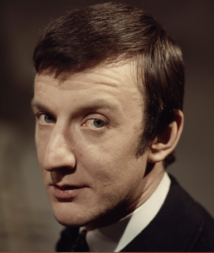Richard Rodney Bennett
Richard Rodney Bennett was an eclectic composer of serious orchestral works, jazz songs and music for stage and screen. Of the former, his most famous compositions include a First Symphony, a piano concerto and four string quartets. Among the latter are scores for operas, such as the dramatic "The Mines of Sulphur" and the more light-hearted and satirical "A Penny for a Song". Born into an artistic family (his mother was a pianist and composer, his father a writer of children's books), Bennett wrote a cantata, "Put Away the Flutes", while still in his early teens. He enrolled at the Royal Academy of Music in London in 1953, graduating three years later. He subsequently continued his studies under the avant garde French composer/conductor Pierre Boulez in Paris, eventually becoming adept at fusing jazz and serial techniques, in addition to mastering jazz piano.
Comfortable in varied genres, some of his best film music is strongly jazz tinged, notably The Wrong Arm of the Law (1963) and Billion Dollar Brain (1967). Other well-known scores include the romantic, melodic themes for Far from the Madding Crowd (1967), Nicholas and Alexandra (1971) and Murder on the Orient Express (1974), the latter two garnering both Oscar and Grammy Award nominations ("Orient Express" also winning a BAFTA). From 1979, Bennett was based in New York, where his Second Symphony had been commissioned by Leonard Bernstein eleven years earlier (Bernstein eventually became one of his referees for a green card, Stephen Sondheim, another). Bennett's predilection for jazz was given free reign in the 1990's, when he began to play jazz piano in cabaret, including at Ronnie Scott's Jazz Club in London and a season at the Oak Room of the Algonquin Hotel, invariably accompanied by vocalists Claire Martin or Marian Montgomery. He had also held the international chair of composition at the Royal Academy of Music from 1994 to 2000.

